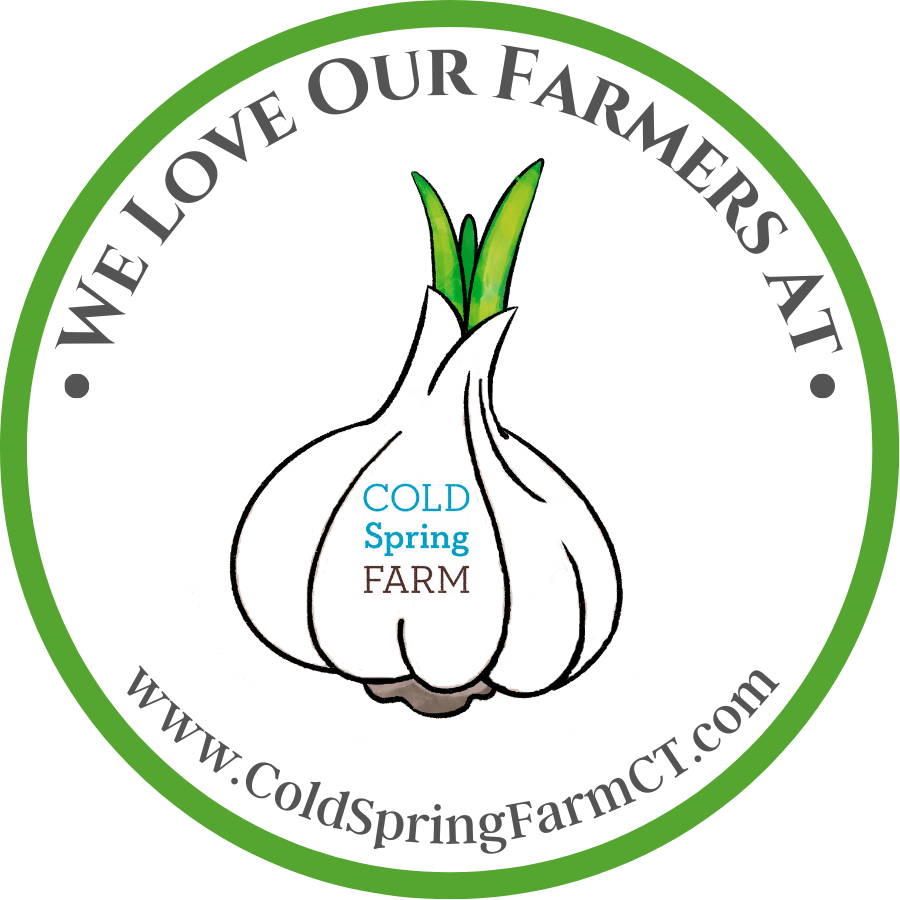Why Messy Gardens Are The Best Gardens
WE HAVE NEGLECTED
THE TRUTH THAT A GOOD
FARMER IS A CRAFTSMAN
OF THE HIGHEST ORDER,
A KIND OF ARTIST.
— Wendell Berry
This lovely place we call home, Cold Spring Farm, is the place “Where Food and Nature Grow Together.” And the entire design and layout of our farm is exactly that.
Put simply, I take great pride in my messy gardens. I know, I know. It is the exact opposite of what you might expect to hear or read. Then again, I’ve always been the unconventional type, and if you know me personally, or have heard me talk on my farming philosophy, perhaps you are not at all surprised. Either way, if you choose to read on, I will provide you with your very own justifications for your own messy gardens so you can teach others if they dare comment or judge.
It is of normal convention that we as gardeners, and especially farmers, are trained and taught by those who have come before us, who pass land down to us, who abandon their gardens with the houses we acquire: that everything must be kept neat and clean, perfectly arranged in even rows with proper spacing, no weeds in sight, each stone or block or border in its place, and red or brown mulched at all times. That Nature must be controlled in order to earn you the title of a “good gardener,” or a “good farmer.”
Well, that’s all hogwash to me.
The art of neglect is the most wonderful form of work, in my opinion, and its benefits and beauty are unmatched by any other method you might uncover.
It’s time to start thinking about how you can undo those even rows, and remove that hideous, poisonous mulch, and start cajoling nature into reclaiming its rightful place in your gardens.
In order to do this, we must start from the beginning. The basic knowledge you need to have in order to be successful in this messy endeavor is right here:
#1. Nature was here before you were.
#2. Nature will be here long after you are gone.
#3. You are part of Nature. You will exist, produce carbon, and then decompose.
#4. No human is above or below Nature.
#5. What you don’t cover, Nature will take care of for you.
Now that we have gotten that out of the way, we can move forward on this topic of messy gardens.
Consider this: your garden is a small ecosystem within a much larger ecosystem. What you do or don’t do in that space matters a whole lot. The less organized your garden appears, the more success you will have in gardening. Yes, you read that correctly.
This small ecosystem you have created does not need to be maintained with loads of diligence. Yes, you can still put plants where you want to see them, and organize the varying heights and color schemes of your wildest whims. The one key word in that sentence is “WILD.” Hold onto it. You’ll need it later.
The garden ecosystem can be a very fun affair and it should be treated just that way. Where food production is concerned, you can add all those favorites into your planting scheme. You can have those sunny flowers, space-filling shrubs, and your favorite heirloom tomatoes and carrots all in one happy garden. And I recommend that you do for the best results.
The more diversity you keep in your gardens (including the weeds you were taught to murder with a vengeance), the more prolific your crops, flowers or food, will be. Let Nature take hold of what you began with your simple planting plan and initial drawing. Or, skip the drawing altogether and just get out there and PLANT.
Just as humans are part of Nature, other animals, insects, microorganisms are, too. Your goal in gardening should not be to eradicate them, but to include them in your small ecosystem. They belong there. Plant flowers to attract the pollinators that are essential to your gardens flourishing. Add fungal foods to your soil such as cardboard and newspaper, so that your fungi will feed the beneficial organisms in your garden.
Chemicals kill. Avoid them at all costs. Buy plants without those pesky green balls of fertilizer, or plant seeds to get you started. Find ways to encourage what you want by planting what will attract the beneficial creatures, or what will keep the pests at bay in the months of their own lifecycles. Or, embrace the inevitable. Lifecycles begin and end on a consistent basis. You can always count on that.
Nature is constantly evolving, as are our well-neglected gardens. Keep in mind that all good gardens are left to their own devices, or gently swayed by a good gardener or farmer’s hands to be shaped in their wildness. And by shaped, I don’t mean pruned before Winter. Leave those branches and fronds for the birds.
A good gardener is an artist. Wendell is correct. Healthy gardens will reflect the work of an artist, not a scientist.
Please also note: gardens will have their ups and downs. It’s a perfect system in that exact way. Plant accordingly and enjoy every free moment you’ve just gained.
*This will soon be followed by another blog by Jess the Farmer “On the Benefits of Weeds.”

